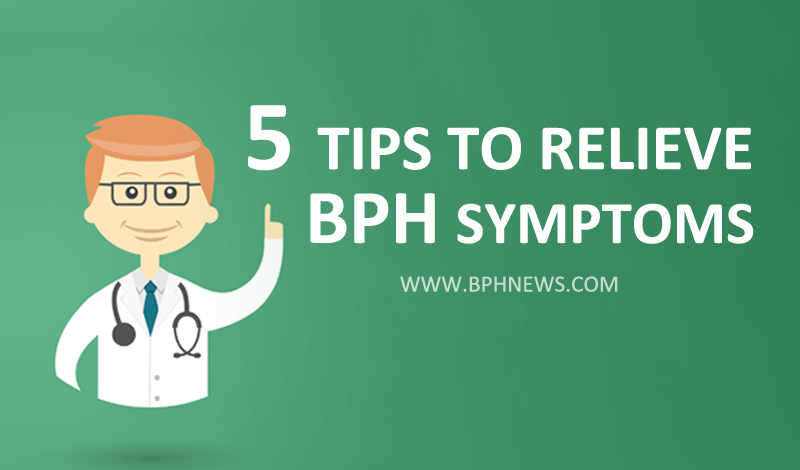Benign prostatic hyperplasia (BPH), also called benign prostatic hypertrophy orenlarged prostate, is a disease that affects men. Due to BPH, the vast majority of men develop an abnormal enlargement of the prostate, which affects the urinary and reproductive systems. BPH can be a really uncomfortable disease, mainly because of the constant and recurrent need for men to urinate during the day, but especially several times a night. To help you cope better with BPH symptoms discomfort, we’ve put together five tips to help you relieve your BPH symptoms, with the help of Harvard Health Publications (from Harvard Medical School):
1. Relax: Being tense or in a nervous state most of the time can make you urinate more frequently. Try to reduce stress by exercising regularly and practicing relaxation techniques such as meditation.
2. Empty your bladder: Every time you go to the bathroom, take all the time you need until you empty your bladder completely. This will reduce the need of having to visit the toilet so many times.
3. Learn about your medicine: Talk with your doctor about all prescription and over-the-counter medications you’re taking because this can be causing some problems for your condition. Your doctor may be able to adjust dosages or change your schedule for taking these drugs, or he or she may prescribe different medications that cause fewer urinary problems.
4. Cut down on liquids: Avoid drinking fluids in the evening, particularly caffeinated and alcoholic beverages. If you drink less during the day, and especially at night, it will avoid some trips to the toilet for nighttime urination.
5. Nutrients: Taking targeted nutrients is also a good idea. Try to increase your intake of omega-3 essential fatty acids for better prostate health. At the same time, you should reduce your intake of inflammation-producing omega-6s, typically found in vegetable-based cooking oils, such as safflower, corn, sunflower, and soybean. Vitamin D3 and curcumin are also great supplements to be used as a complementary treatment for benign prostatic hyperplasia.
Read the latest updates on BPH here: http://bit.ly/1IC9Rp1
BPH News is strictly a news and information website about the disease. It does not provide medical advice, diagnosis or treatment. This content is not intended to be a substitute for professional medical advice, diagnosis, or treatment. Always seek the advice of your physician or other qualified health provider with any questions you may have regarding a medical condition. Never disregard professional medical advice or delay in seeking it because of something you have read on this website.

